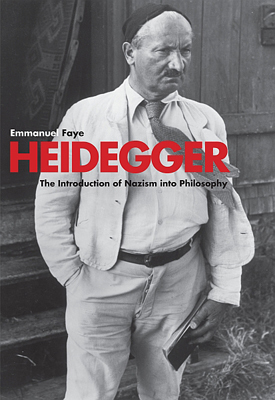
This event is open to the public.
Sponsored by the Nanovic Institute for European Studies, the Henkels Lecture Series (Institute for Scholarship in the Liberal Arts), and the Departments of German and Russian Languages and Literatures, History, Philosophy, and Political Science.
In the most comprehensive examination to date of Heidegger’s Nazism, Emmanuel Faye draws on previously unavailable materials to paint a damning picture of Nazism’s influence on the philosopher’s thought and politics. This lecture at Notre Dame will be the first time Faye speaks on the subject of his book in the United States since it appeared in English.
In his provocative book, Faye uses excerpts from unpublished seminars to show that Heidegger’s philosophical writings are fatally compromised by an adherence to National Socialist ideas. In other documents, Faye finds expressions of racism and exterminatory anti-Semitism.
Faye disputes the view of Heidegger as a naïve, temporarily disoriented academician and instead shows him to have been a self-appointed “spiritual guide” for Nazism whose intentionality was clear. Contrary to what some have written, Heidegger’s Nazism became even more radical after 1935, as Faye demonstrates. He revisits Heidegger’s masterwork, Being and Time, and concludes that in it Heidegger does not present a philosophy of individual existence but rather a doctrine of radical self-sacrifice, where individualization is allowed only for the purpose of heroism in warfare. Faye’s book was highly controversial when originally published in France in 2005. Now available in Michael B. Smith’s fluid English translation, it is bound to awaken controversy in the English-speaking world.
Emmanuel Faye is associate professor at the University Paris Ouest–Nanterre La Défense and an authority on Descartes. He lives in Paris.
(Text courtesy of Yale University Press)
Additional Resources
- Heidegger: The Introduction of Nazism Into Philosophy (2009,Yale University Press)
- Heidegger, Hitler’s ‘spiritual guide’
- Why Read Heidegger?
- New York Time Review